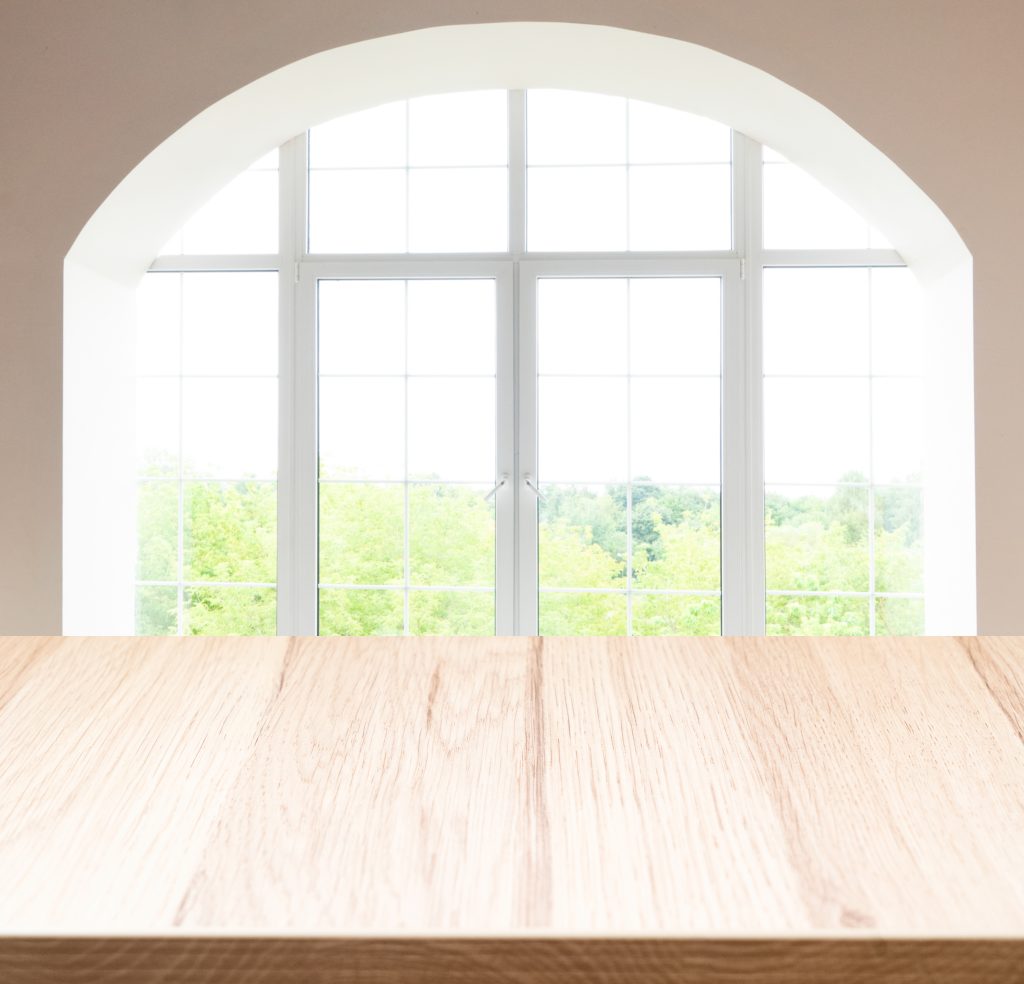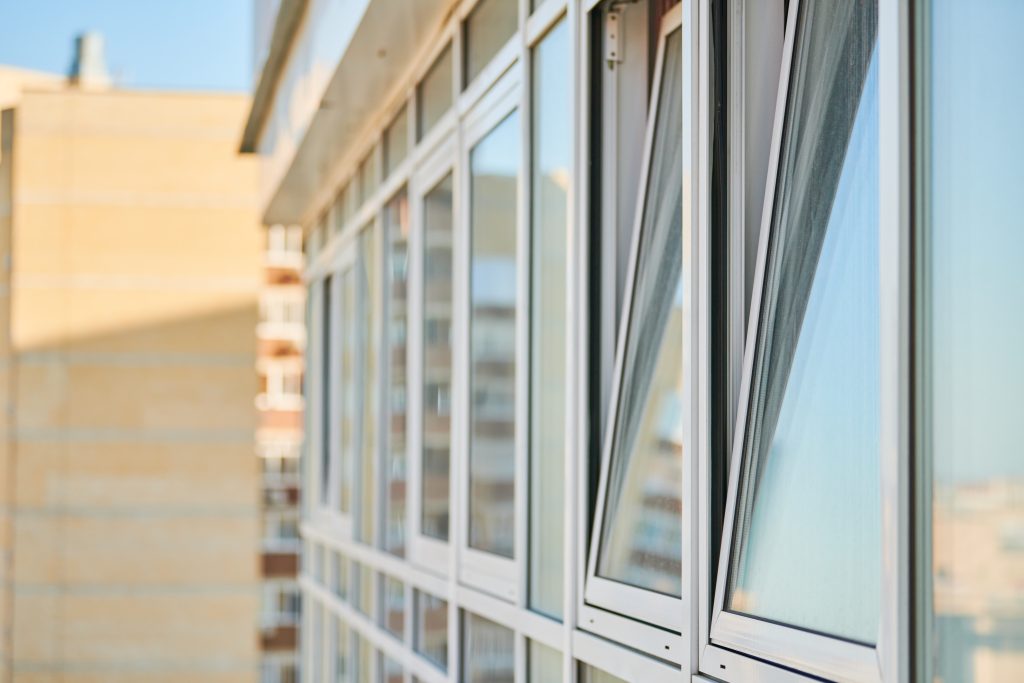Living on Florida’s Gulf Coast means waking up to stunning water views and ocean breezes. But it also means your home faces challenges that inland properties never see. Windows that work perfectly fine a few miles from the water simply won’t hold up when salt spray, tropical storms, and relentless humidity become part of daily life.
Choosing the right windows isn’t just about keeping your home looking good. It’s also about protecting your investment, keeping energy bills manageable, and sleeping soundly when storm warnings start appearing on the forecast.

The same salt air that makes coastal living so appealing becomes enemy number one for standard window materials. Metal components corrode faster than most homeowners expect. Seals break down. Hardware freezes up. That constant exposure to moisture-laden air doesn’t affect just what you can see on the surface, either. Inside the wall cavity, condensation builds up, potentially causing problems that won’t show themselves until significant damage has already occurred.
Homes within a mile or two of the waterline experience accelerated aging on every exterior component. Windows bear the brunt of this wear, especially on the sides facing the prevailing winds that blow directly in from the Gulf.
When storms roll through, they bring more than just heavy rain. Flying branches, roof tiles, patio furniture, and even driveway gravel become dangerous projectiles. Regular glass shatters on impact, leaving homes vulnerable to water damage and posing safety hazards to anyone inside.
Hurricane surge doesn’t have to reach your doorstep to cause problems. Spray from waves and wind-whipped water can travel surprisingly far inland, coating everything in a salty film that accelerates deterioration. Standard windows simply weren’t designed to handle this kind of abuse season after season.
Florida’s sun beats down relentlessly, especially during the summer months. Windows that aren’t rated adequately for high-heat zones turn homes into greenhouses. Air conditioning systems run constantly, driving up energy bills while struggling to maintain comfortable temperatures.
The problem worsens in coastal areas, where humidity adds to the heat load. Poor-performing windows allow moisture infiltration, which not only affects comfort but can lead to mold growth and interior damage over time.
Hurricane-rated windows are not just thicker glass. They feature laminated construction that holds together even when shattered. When debris strikes, the inner membrane keeps the glass in place, preventing it from exploding into dangerous shards or creating an opening for wind and water.
The frames matter just as much as the glass itself. An impact-rated window needs a frame system engineered to withstand the intense pressure differentials that happen during significant storms. Cheap frames will fail even if the glass holds.
Look for products that meet Miami-Dade County testing standards, which remain the most stringent in the country. If a window can survive those requirements, it can handle what the Gulf Coast throws at it.
Your frame material choice makes all the difference in coastal environments:
Energy Star certification represents the baseline. Coastal Florida homes need windows rated explicitly for the Southern Climate Zone. Pay attention to the U-factor, which measures heat transfer. Lower numbers mean better insulation against both hot and cold temperatures.
Solar Heat Gain Coefficient matters even more in this climate. This rating tells you how much solar radiation passes through the glass. In Florida, you want lower SHGC numbers to block heat while still allowing natural light.
Don’t overlook the Visible Transmittance rating. This measures how much light comes through. Finding the sweet spot between blocking heat and maintaining bright, cheerful interiors makes a massive difference in how your home feels.

These windows have revolutionized coastal construction. Two layers of glass sandwich a tough polymer interlayer that absorbs impact energy. When something hits the window, the glass may crack, but it stays in the frame, protecting your home’s interior.
The benefits extend beyond storm protection:
The initial investment runs higher than standard windows, but insurance companies recognize their value. Many offer premium discounts for homes equipped with impact-rated windows throughout, which helps offset the cost over time.
Two panes filled with an insulating gas create a thermal barrier that keeps conditioned air inside. The space between panes often contains argon or krypton gas, which insulates better than regular air.
Low-E coatings on the glass reflect infrared light, keeping heat out during summer while retaining warmth during the occasional cold snap. These microscopically thin metallic layers don’t affect visibility but make a noticeable difference in energy bills.
For coastal homes, make sure any double-pane window also carries impact ratings. The combination of energy efficiency and storm protection provides the best overall performance.
Patio doors and floor-to-ceiling windows bring in natural light and frame those beautiful coastal views. But large expanses of glass pose a liability during storms unless they’re properly rated for impact resistance.
Modern impact-rated sliding systems operate smoothly despite their reinforced construction. The frames feature multiple locking points that evenly distribute force, preventing the door from being blown in or pulled out during high winds.
French door configurations work equally well when built to impact standards. The key lies in the frame construction and proper installation. Even the best door fails if not anchored correctly into the building structure.
Coastal windows need attention. Even the best materials require periodic cleaning to remove salt buildup. Hardware should be lubricated annually. Seals and weatherstripping need inspection every year or two.
Manufacturer warranties vary significantly. Look for coverage that explicitly addresses coastal environments. Some companies void warranties if installed within certain distances from saltwater, which defeats the entire purpose of buying quality windows for a seaside home.
Installation warranties matter just as much as product warranties. Proper installation makes the difference between windows that perform as designed and windows that fail prematurely. Companies like Mr. Build back up their installations with comprehensive warranties because they understand what coastal conditions demand.
Building codes in coastal Florida exceed minimum national standards for good reason. Your windows need to meet or exceed these requirements to pass inspection and maintain insurance coverage. The code addresses everything from design pressure ratings to installation methods and structural anchoring.
Different zones within coastal areas have different requirements based on distance from the water and potential wind speeds. A company familiar with local codes knows which products are permitted in your specific location and can guide you through the permitting process.
Installing impact windows requires specialized knowledge. The attachment points need precise engineering. Flashing must be installed correctly to prevent water intrusion. Even small mistakes during installation can compromise the window’s performance when it matters most.
Companies with decades of coastal experience have seen what works and what fails. They know how to prepare for the installation, protect your home during the work, and clean up properly when finished. That experience becomes especially valuable during the compressed timeline before hurricane season, when everyone wants upgrades completed.
Reputable installers partner with manufacturers who stand behind their products in coastal environments. These relationships matter because if problems develop, you need a company that will work with the manufacturer to make things right.
Ask about the specific brands being recommended and why. Generic responses about “quality products” should raise red flags. Installers who know their product lines can explain the differences between options and help match the right window to your specific situation and budget.

Professional measurements catch potential issues before ordering custom windows. Rough openings in older homes rarely match standard sizes, and discovering this after ordering delays the entire project.
Seeing physical samples helps tremendously. Photos on websites don’t convey how a window actually looks, feels, and operates. Visiting a showroom or getting samples brought to your home lets you see finish options in your actual lighting conditions.
Get warranty details in writing before committing to any purchase:
Ask specifically about corrosion resistance testing. Quality manufacturers test their products in salt spray chambers that simulate years of coastal exposure. If a company can’t provide this information, their windows weren’t designed for your environment.
Budget constraints are real. Replacing every window at once might not be feasible. Prioritizing certain areas makes sense:
Full replacement offers advantages beyond just completing the project faster. You get a consistent appearance throughout the home. The installer can order all materials at once, potentially getting volume pricing. And you won’t have the ongoing concern about which windows still need to be upgraded before the next storm season.
Yes, most Florida insurance companies offer discounts for certified impact-resistant windows and doors. The exact discount varies by insurer and your specific policy, but homeowners often see reductions of 10% to 20% on their premiums. Some policies require impact protection on all openings to qualify for the maximum discount, while others offer partial credits for protecting specific areas. Contact your insurance agent before purchasing to understand exactly what documentation they need and what savings you can expect.
Hurricane shutters are temporary barriers installed before storms, while impact windows provide permanent protection. Shutters cost less initially but require time and effort to deploy before each storm, and you lose natural light when they’re closed. Impact windows protect 24/7 without any action needed, provide energy efficiency year-round, reduce noise, block UV rays, and enhance security against break-ins. For coastal homeowners who may need to evacuate quickly or can’t physically install shutters, impact windows offer better protection and convenience.
The ideal window for replacement runs from late fall through early spring (November through April), when humidity levels drop and weather patterns stabilize. This timing allows installers to work more efficiently and reduces the risk of moisture entering your home during construction. Hurricane season officially runs from June through November, so completing window upgrades before summer gives you maximum protection when you need it most. Many contractors also offer better scheduling flexibility and sometimes pricing during the slower winter months, making it the perfect time to plan your project.
Getting the right windows matters more in coastal areas than almost anywhere else. The combination of storm protection, energy efficiency, and corrosion resistance determines whether your windows become a lasting investment or an ongoing source of problems and expense.
Contact Mr. Build for a window evaluation for a coastal home. Their team knows Gulf Coast conditions, Florida building codes, and which products actually deliver on their promises. They’ll assess your home’s specific needs and walk you through options that fit your situation and budget, helping you make decisions you’ll feel confident about for years to come.